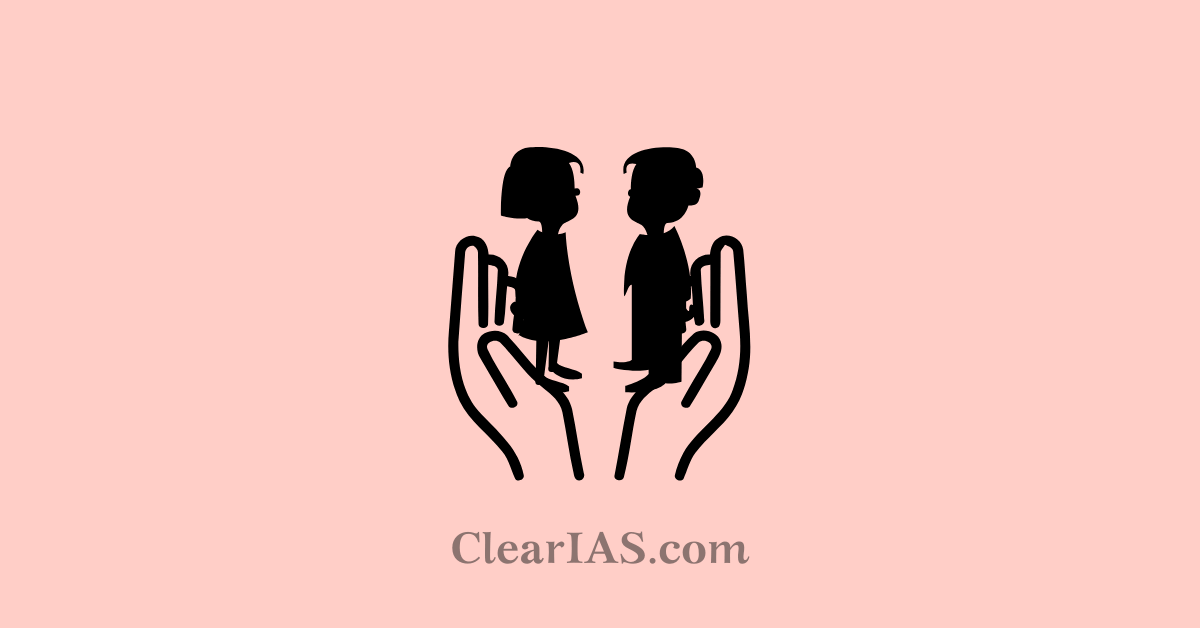

What is the POCSO Act? What are the provisions and features of the act? What is the significance of the act? Read to know more.
The POCSO Act was enacted to protect children from sexual offences.
The Act has been enacted to protect children from offences of sexual assault, sexual harassment and pornography and provide for the establishment of Special Courts for the trial of such offences and related matters and incidents.
The Act was amended in 2019, to make provisions for enhancement of punishments for various offences so as to deter the perpetrators and ensure safety, security and dignified childhood for a child.
Table of Contents
It is defined as “An Act to protect children from offences of sexual assault, sexual harassment, and pornography and provide for the establishment of Special Courts for the trial of such offences and matters connected therewith or incidental thereto.”
UPSC CSE 2025: Study Plan ⇓
Note: To know more about ClearIAS Courses (Online/Offline) and the most effective study plan, you can call ClearIAS Mentors at +91-9605741000, +91-9656621000, or +91-9656731000.
It was passed in 2012 under the Ministry of Women and child development.
The POCSO Act was enacted to protect children aged less than 18 from sexual assault sexual abuse, sexual harassment, and pornography.
It is a gender-neutral act
By defining a child as ‘any person below the age of 18 years, the POCSO Act sets a gender-neutral tone for the legal framework available to child sexual abuse victims. The act also does not distinguish between perpetrators of child sexual abuse on the grounds of gender.
It is an offence to not report an abuse
It requires every person who suspects or has knowledge of a sexual offence being committed against a child to report it to the local police or the Special Juvenile Police Unit. The act not only punishes the perpetrator of sexual abuse but also penalizes those who have failed to report the offence with either imprisonment, a fine, or both.
No time limit for reporting abuse
A victim can report an offence at any time, even several years after the abuse has been committed. Therefore, organizations dealing with children in India cannot deny child sexual abuse complaints filed against their employees on the pretext of lapse of time.
Confidentiality of victim’s identity
Section 23 of the POCSO Act prohibits disclosure of the victim’s identity in any form of media, except when permitted by the special courts established under the act. A violation of this section can attract punishments under the act.
New rules added to the act
The Act mentions 12 key principles which are to be followed by anyone, including the State Governments, the Child Welfare Committee, the Police, the Special Courts, NGOs, or any other professional present during the trial and assisting the child during the trial, which are-
Right to life and survival: A child must be shielded from any kind of physical, psychological, mental, and emotional abuse and neglect
Best interests of the child: The primary consideration must be the harmonious development of the child
Right to be treated with dignity and compassion: Child victims should be treated in a caring and sensitive manner throughout the justice process
Right to be protected from discrimination: The justice process must be transparent and just; irrespective of the child’s cultural, religious, linguistic, or social orientation
Right to special preventive measures: It suggests, that victimized children are more likely to get abused again, thus, preventive measures and training must be given to them for self-protection
Right to be informed: The child victim or witness must be well informed of the legal proceedings
Right to be heard and to express views and concerns: Every child has the right to be heard in respect of matters affecting him/her
Right to effective assistance: financial, legal, counselling, health, social and educational services, physical and psychological recovery services, and other services necessary for the child’s healing must be provided
Right to Privacy: The child’s privacy and identity must be protected at all stages of the pre-trial and trial process
Right to be protected from hardship during the justice process: Secondary victimization or hardships for a child during the justice procedure must be minimized
Right to safety: A child victim must be protected before, during, and after the justice process
Right to compensation: The child victim may be awarded compensation for his/her relief and rehabilitation
The United Nations Convention on the Rights of the Child (CRC) is an international treaty that legally obligates nations to protect children’s rights.
Articles 34 and 35 of the CRC require states to protect children from all forms of sexual exploitation and sexual abuse. This includes outlawing the coercion of a child to perform sexual acts, the prostitution of children, and the exploitation of children in creating pornography. States are also required to prevent the abduction, sale, or trafficking of children.
Related articles: